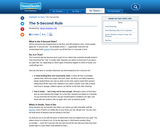
Students learn about safety when eating including how bacteria can make you sick.
- Subject:
- Health
- Healthful Living
- Material Type:
- Reading
- Provider:
- KidsHealth
- Author:
- The Nemours Foundation
- Date Added:
- 06/24/2019

Students learn about safety when eating including how bacteria can make you sick.

This resource provides five ways to reach and maintain a healthy weight including exercise, reducing screen time, watching out for portion distortion, eating five servings of veggies and fruits a day, and why not to skip breakfast.
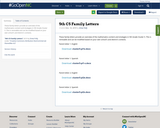
These family letters provide an overview of the mathematics content and strategies in 5th Grade Cluster 5. This is remixable and can be modified based on your own school's and district's contexts.
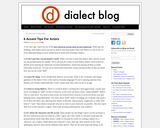
This blog post by a dialect coach is a list of the six most important things an actor should keep in mind when learning a dialect.

In this article, students will learn 6 ways in which they can improve their Spanish speaking ability to sound like a native speaker.

This resource describes the major arguments and assumptions of the various sociological explanations of deviance.
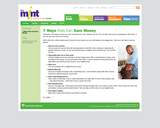
This resource provides students with seven ways they can earn money and start adding to their piggy bank.

This article provides some lesser known information about Vikings in order to dispel a few myths and lend insight to how things really were.

This book is to be used with the lesson "The ABCs of Citizenship." In this lesson, students will read and analyze the Alphabet Book for Young Citizens to reinforce their understandings of the distinctions between a right, a responsibility, and a privilege. They will then use the pages in their books to create a Citizen's Bulletin Board, an exhibit on citizenship, and civic improvisations that provide students with opportunities to deepen and apply their understandings. Students will begin exercising their rights and responsibilities with a better understanding of how such actions help secure their liberties and freedom.

This resource describes the ACIP Decison Making Method. This a simple science-based way to make a good decision. The four essential steps in decision making are explored. ACIP = Alternatives Consequences Information Plans
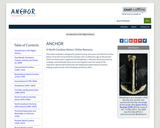
This online textbook is designed for grade 8 and up and covers all of North Carolina history, from the arrival of the first people some 12,000 years ago to the present. There are eleven parts, organized chronologically, a collection of primary sources, readings, and multimedia that can be rearranged to meet the needs of the classroom. Special web-based tools aid reading and model historical inquiry, helping students build critical thinking and literacy skills.
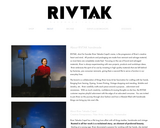
Resources provides information about Rivtak, a business created by an North Carolina native.

This article explains how STDs spread and how to prevent and treat STDs.

This is a supplemental article that discusses what stressful feelings are. The following topics are discussed: ?Positive vs. Negative Emotions ?Step 1: Identify the Emotion ?Step 2: Take Action ?Step 3: Get Help With Difficult Emotions

This article discusses momentary and lasting stress, as well as, how to build good coping skills.
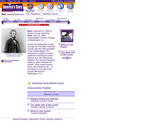
This article describes the humble beginnings of our 16th president, Abraham Lincoln. Photographs are included. His path to the presidency was marked by determination and perseverance. Lincoln did not let the problems in his life stop him from exemplifying good citizenship and helping others. Clicking through the links provides varied information about his life.
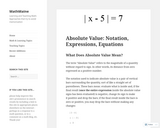
An introduction to piecewise functions using absolute value as a piecewise function of two linear functions.
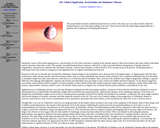
This article discusses acetylcholine and its association with Alzheimer's disease.
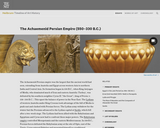
This article explains the development and legacy of the Achaemenid Persian Empire.
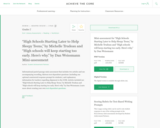
Informational paried passage mini-assessment that includes two articles and one accompanying recording, thirteen text-dependent questions (including one optional constructed-response prompt for students), and explanatory information for teachers regarding alignment to the CCSS. Articles included are “High Schools Starting Later to Help Sleepy Teens,” by Michelle Trudeau and “High schools will keep starting too early. Here’s why.” by Dan Weissmann